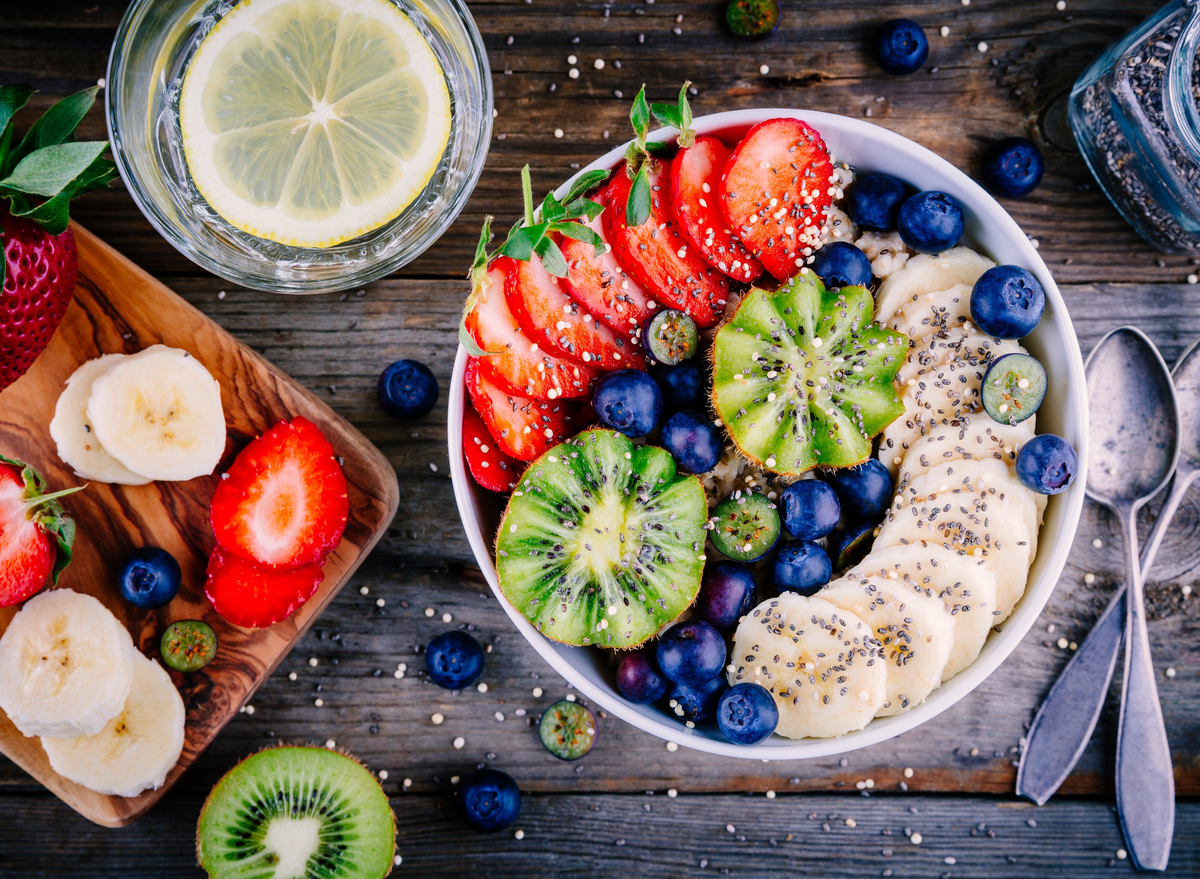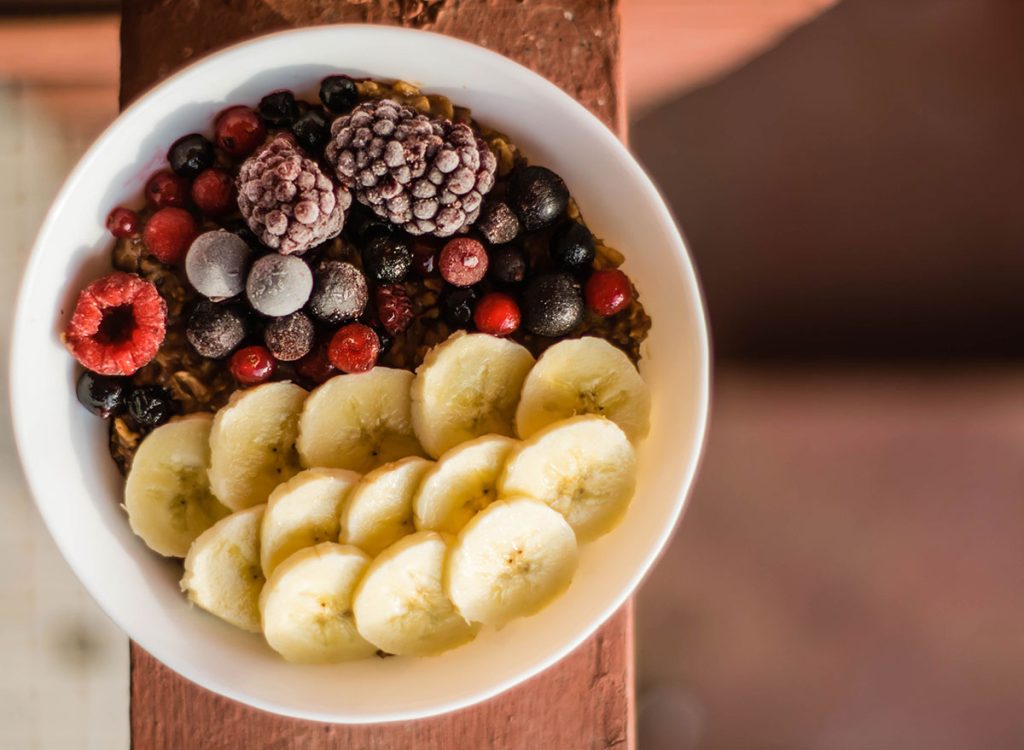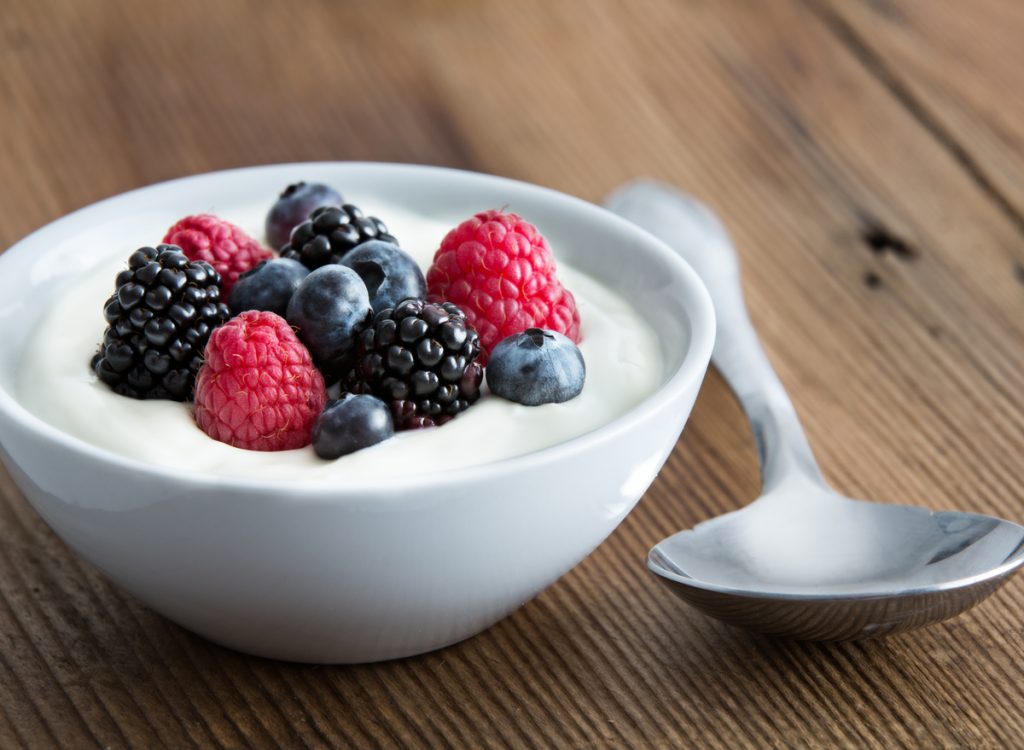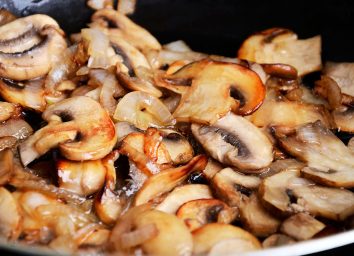The Best Breakfast Habits for Your Immunity, Say Dietitians

You've probably heard that breakfast is the most important meal of the day. The meal is referred to as the most important for good reason—eating breakfast helps with weight management and improves energy and concentration levels. The first, most important meal also serves as a good opportunity to help you stay healthy, as there are many opportunities with breakfast to boost your body's immunity.
While it's important to avoid some of the worst breakfast habits for your immunity, it's also important to focus on the positive and try some of the best breakfast habits to help avoid getting sick and that will boost your body's immunity. Here's what to munch on in the morning, and for even more healthy eating tips, be sure to check out our list of The 7 Healthiest Foods to Eat Right Now.
Add in some fruits and veggies.

A quick and easy way to add more nutrients and vitamins to your diet is by adding fruits and vegetables. If you're making oatmeal or cereal, add some berries. Or if you're making something more savory like scrambled eggs, chopping up a few bell peppers is a quick way to add some extra vitamin C to your meal, suggests Alicia Galvin, RD for Sovereign Laboratories.
"[This will] provide fiber, which is important for feeding the beneficial bacteria in your digestive tract that can influence immunity," says Galvin.
Stay hydrated with water.

The seemingly limitless choices of beverages available at breakfast can seem exciting, but it's also important to make sure you're drinking water as well. While water can seem like a simple breakfast habit to make, it's one of the most important because of how crucial water is in keeping your body healthy.
"Your body is two-thirds water, so staying hydrated plays a key role in immune health," says Lauren MacLeod, RD. "Hydration keeps your mind sharp, joints lubricated, membranes strong, and more."
Put some citrus on your plate.

It's often said that "an apple a day keeps the doctor away," but maybe it's time to ditch the conventional wisdom and throw an orange or pineapple in the mix as well. Citrus fruits are well-known to be full of vitamin C, which can help lower the risk of cancer and cardiovascular disease, according to the National Institute of Health.
In addition to eating a slice of an orange or melon, citrus fruits can also be juiced for a breakfast beverage that's both refreshing and great for your body's immunity. Registered dietitian Keith-Thomas Ayoob recommends regularly having a glass of orange juice with breakfast because it not only contains vitamin C but also flavonoids, which can help upper respiratory tract infections.
Here's The #1 Best Orange Juice to Buy, Say Dietitians.
Include some protein.

Adding protein sources, like beans, eggs or meat, or even some protein powder in a breakfast smoothie is a great way to ensure you're full and starting your day off with a burst of energy, but it can also be beneficial to your immunity as well.
"Foods that are rich sources of protein deliver a range of amino acids to the body that are required for healthy body function including immunity," says Amelia Brown, RD with Redwood Reserves. "Your immune system uses these amino acids to fight infections and provide quick recovery from illnesses."
Brown recommends incorporating seafood like salmon and sardines into breakfast for a breakfast that not only has a high protein content, but is also full of omega-3 fatty acids.
Incorporate eggs.

This might seem like a no-brainer. Eggs, a breakfast staple, are loaded with protein and on their own are a great start to the most important meal of the day. They can also be made in so many different ways and into a wide swath of recipes, including omelets and quiches. While eggs are a great option for breakfast, they are also extremely helpful for your immunity because of their high vitamin D content, according to registered dietitian Amy Gorin.
"Eggs are one of the few food sources of vitamin D, a vitamin that's important for immune health," says Gorin. "One large egg provides six percent of the daily recommendation for vitamin D. Vitamin D is considered a nutrient of public health concern, which means that most Americans do not get enough of it."
Focus on fiber.

Due to the fact that it cannot be digested, fiber is great for gut health. That means that it's good at keeping blood sugar and hunger in check, and also helps keep the body's digestive system regular. An additional benefit of having a healthy gut is that it can boost your body's immunity.
"[A majority] of our immunity is located in our gut, and fiber is critical to maintaining a healthy microbiome," says Lauren Harris-Pincus, RD and author of The Everything Easy Pre-Diabetes Cookbook. "I suggest aiming for eight grams of fiber at breakfast to get your jump-start for the day. You can get that amount in one cup of raspberries or blackberries or one-third cup of Fiber One cereal. Mixing that with a source of probiotics like Greek yogurt will yield even better results."
Try loading your breakfast plate with some of these 43 Best High-Fiber Foods For a Healthy Diet!








